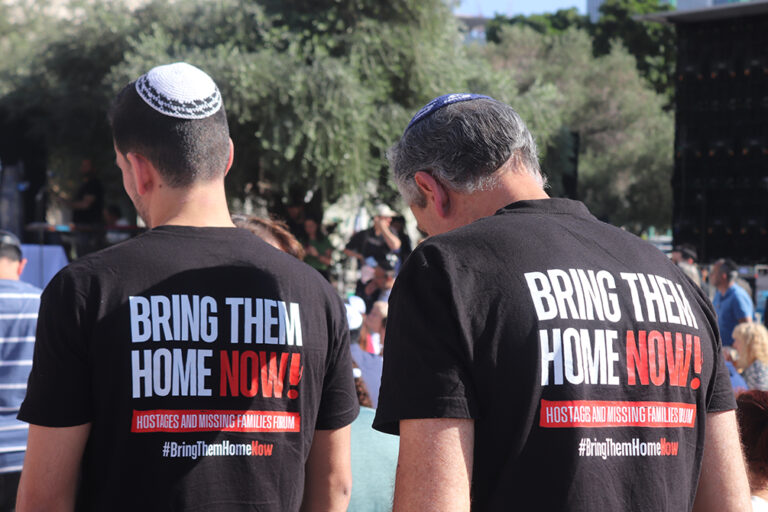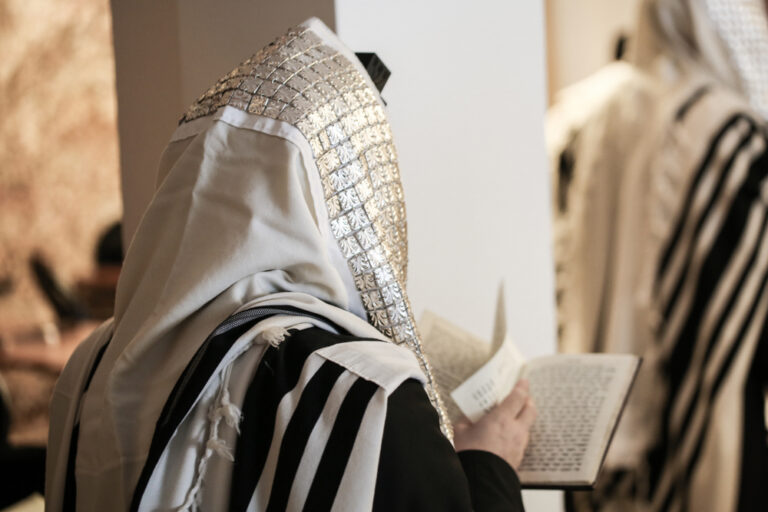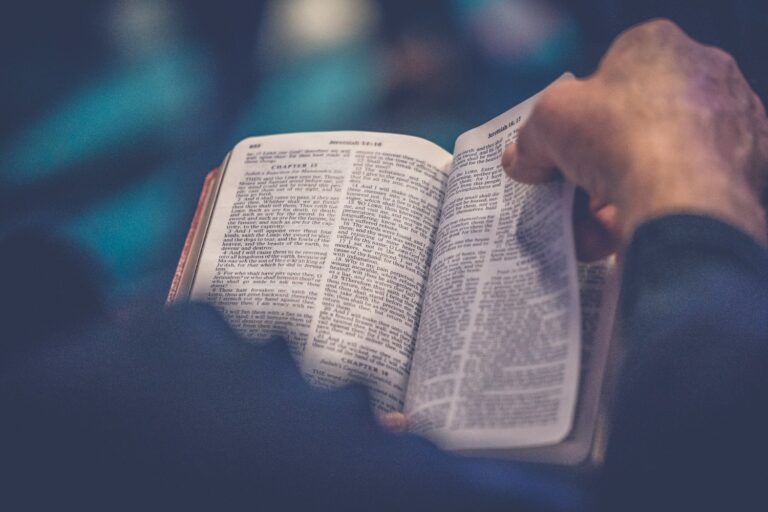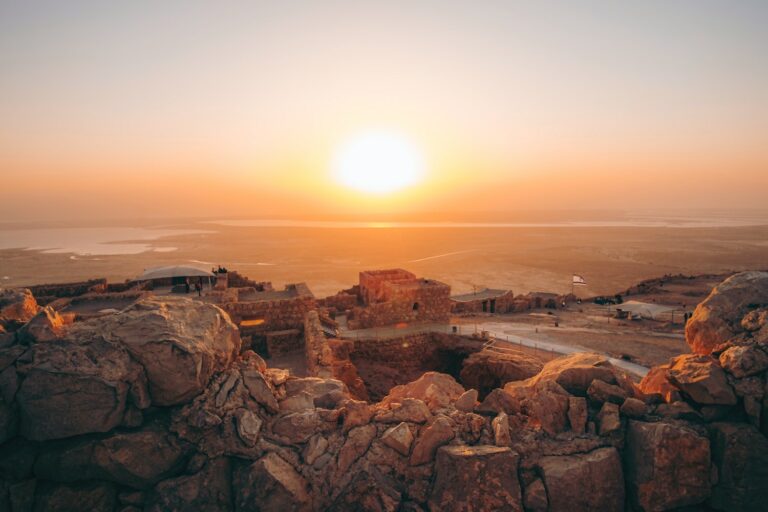By Nicole Yoder, ICEJ Vice President for Aid & Aliyah
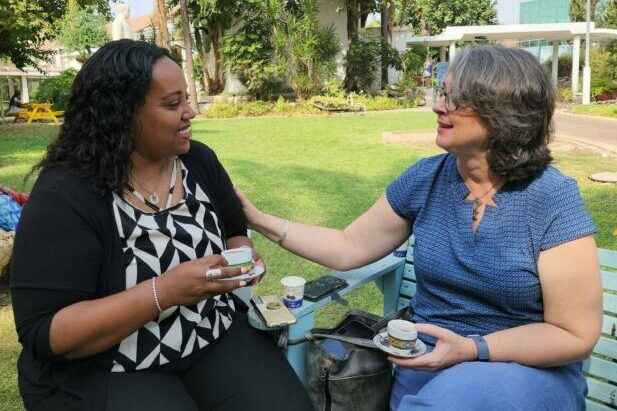
Many Ethiopian immigrants arrived in Israel only about six months before the terrible events of October 7. Aviva, Director of an Aliyah Centre in Ashkelon, just 10 miles north of Gaza, noted that many, especially the elderly, do not speak Hebrew yet, so they rely on interpreters to understand what is happening around them. Some are suffering from trauma and need help to deal with the fears and uncertainty.
Aviva recounted her experiences that fatal Shabbat morning with the chaos and fear caused by the massive rocket barrages and terrorist infiltrations. “I live about 10 minutes away, and arriving at the Aliyah Centre was the most frightening trip I’ve ever made in my life,” shared Aviva. “Traffic lights weren’t working, electricity lines were down on the roads. I arrived at 7 AM, shortly after the attack began, to find chaos. The immigrants, most of whom are religious, were on their way to prayers when the red alert sounded, and they were very afraid and confused. I knew I couldn’t get control of the situation by myself, so I asked some of the young soldiers home on leave to get into uniform and help me create order.”
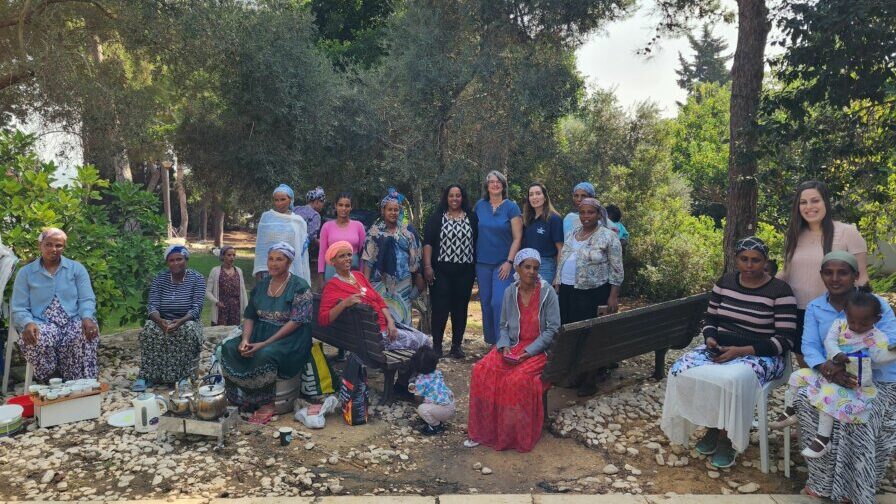
Evacuation
On the second day of the war, the evacuations began to secure locations in the North for the 400-plus Ethiopian immigrants at the centre. The ongoing rocket fire made the operation difficult and complex, with potentially lethal shrapnel falling on the centre and the red alert sirens sounding often. It took two days to get everyone out. As each bus left, there was concern for their safety.
“I was completely focused on the task at hand,” continues Aviva. “on a personal level, I left my children alone at home. There was fear of terrorists invading the area. This was a terrifying new reality we had never experienced before. Once everyone was evacuated and I made sure they were safe, I finally had time to think about me and my family. I live in southern Ashkelon, so we could hear all the shots being fired – both by the IDF and by the terrorists. We heard that some terrorists were near our neighbourhood, and my parents are still there.”
“Aviva, you are a real heroine!”, I exclaimed, trying to imagine her ordeal. Her response made us both smile.
“Yes. I am! Today I can allow myself to say so!”
Giving her a spontaneous hug of support, I asked “how are you today? Do you have what you need?”
“We are now more than 15 days in the North. It’s very tough because we don’t know when we will return or how long we will be here. People came with very little,” she explained. “Many immigrants are concerned that they can’t work, and they have bills to pay.”
Blessings Given and Received
Aviva shared with the immigrants over morning coffee that it was the ICEJ and their Christian friends worldwide who enabled them to be in this safe place. This prompted the older men in the community to stand one by one to bless us. Their message was simple and sincere:
“We want to thank you for the swift response to take us out of danger. We are thankful to God that we can get up in the morning without fear or the need to be in bomb shelters. We pray that God will bring quiet to our country and that we can find a way to peace. We pray that God will protect all those who are protecting Israel. When we made Aliyah, we knew there would be many challenges. We are still learning to understand new traditions in a new land and suddenly we find ourselves at war. Because of you, we are in a secure place, and we really appreciate your efforts for us. Thank you so much.”
I responded: “Thank you for your blessings. I receive them, and I want to return blessings back to you. When this terrible war began on the Simchat Torah holiday, Joshua 1 was to be read in the synagogues. As they crossed the Jordan River, Joshua told the people to be strong and courageous. You’ve always needed strength and courage to live in this land. May you be strong and courageous, and may you soon see better days. You are not alone; you have Christian friends around the world who wish you well.”
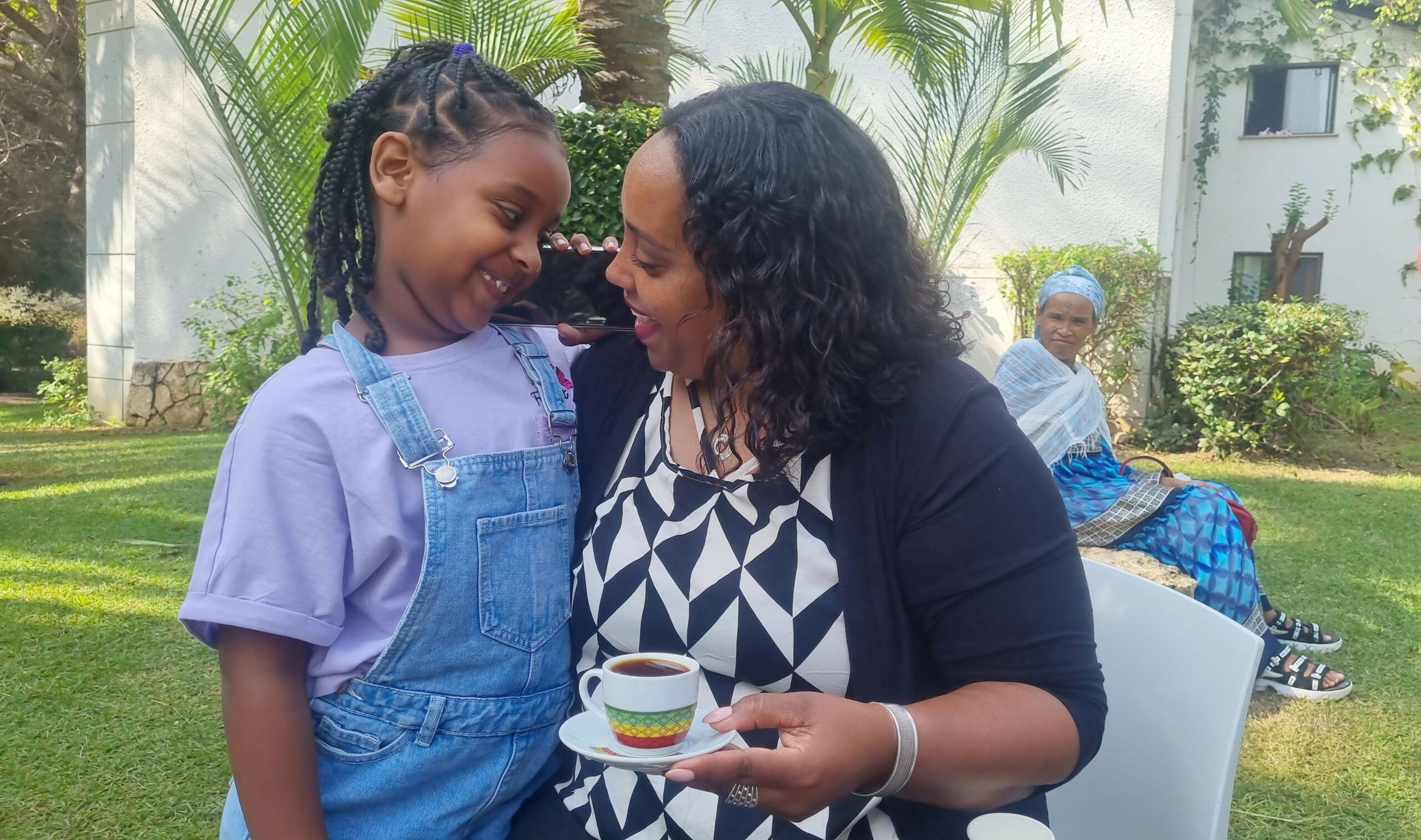
Thankfully, Aviva’s children are now reunited with her in the North. Today, there are over 200,000 Israelis evacuated from their homes and more could be displaced in the coming days. Of these evacuees, more than 2,100 are new immigrants. However, they may have to return home if additional assistance is not found to cover the expenses of hosting them elsewhere.
ICEJ and Other Evacuees
For almost three weeks, the ICEJ, in cooperation with The Israel Cornerstone Foundation has been hosting and caring for three evacuee families who relocated to a safe house we arranged in Tzur Hadassah, just south of Jerusalem.
Two ICEJ staff members have been on hand night and day to look after these traumatized people. Our team prepared the rooms for their arrival, and now have been taking them shopping or to the pharmacy, sharing a word of encouragement, offering a hug, or simply listening to their stories.
Israel is expecting a surge in Aliyah, as Jews from around the world are realising that it is time to leave their countries in which so much hatred has been manifest in recent days. Your donation to our ‘Israel in Crisis Fund’ will help Israel to cope with this increase, and the each new immigrant to flourish in their new home.
Click here to donate tax deductibly today: icej.org.au/aid
Photos courtesy of ICEJ International.
